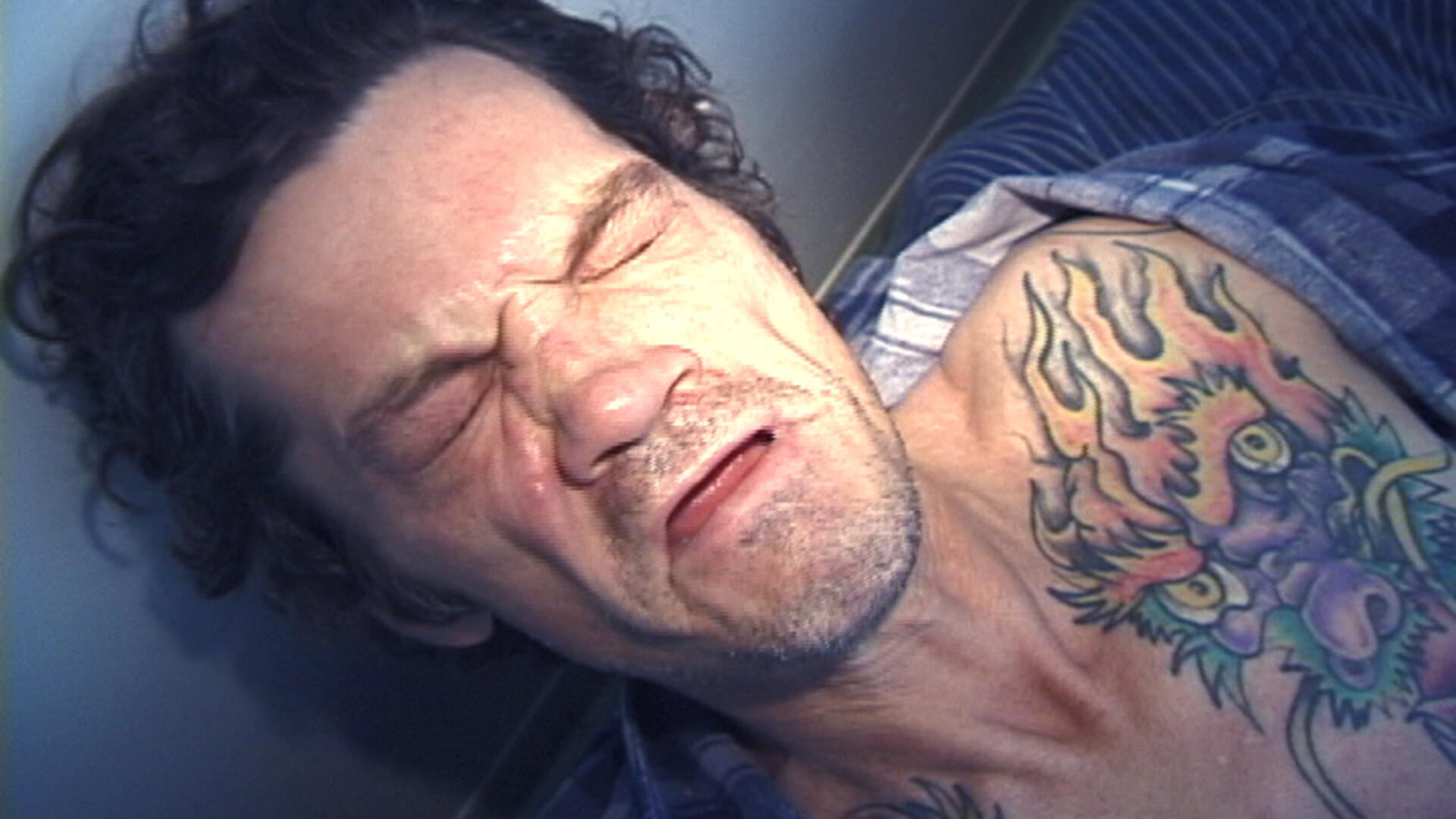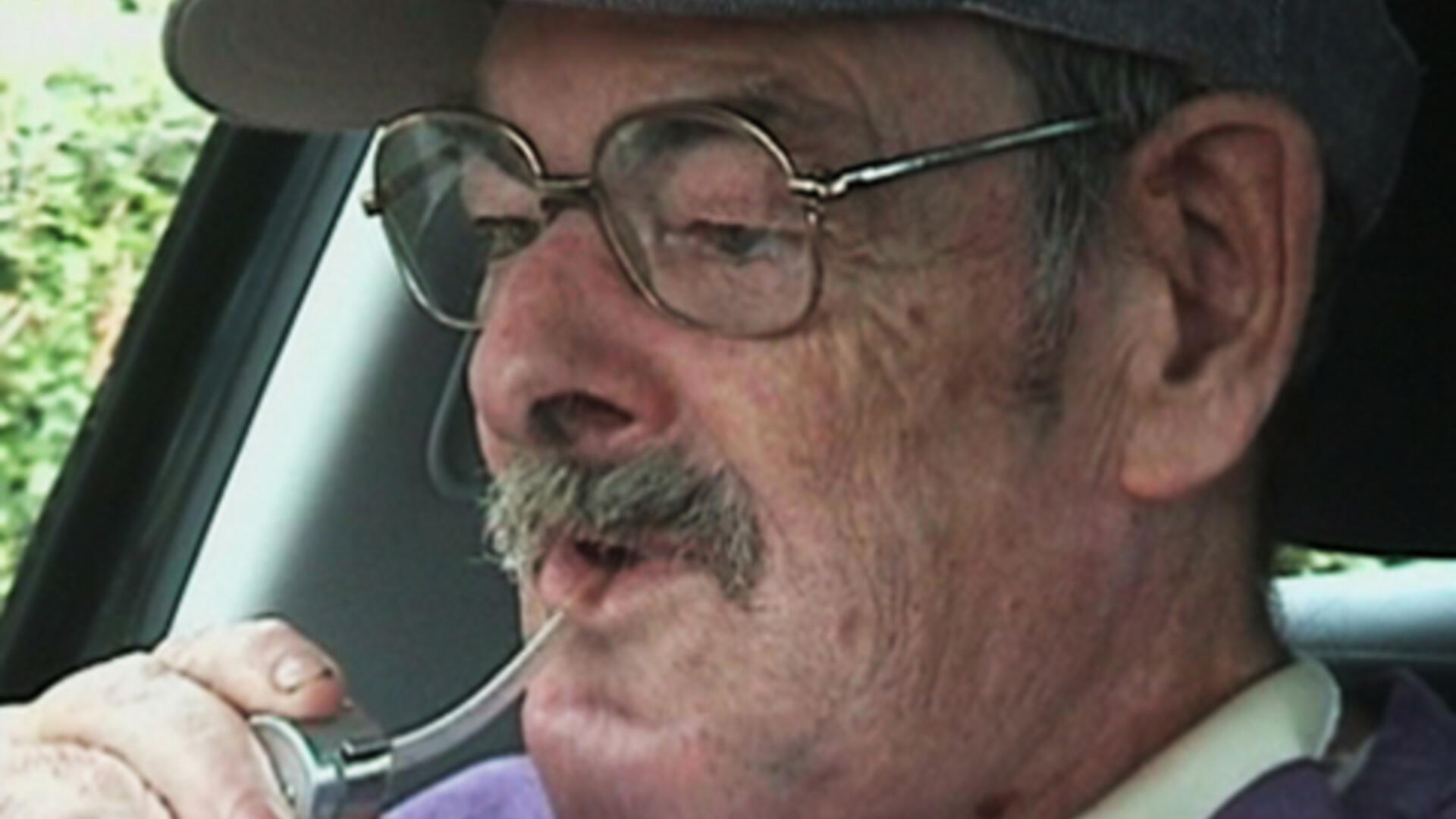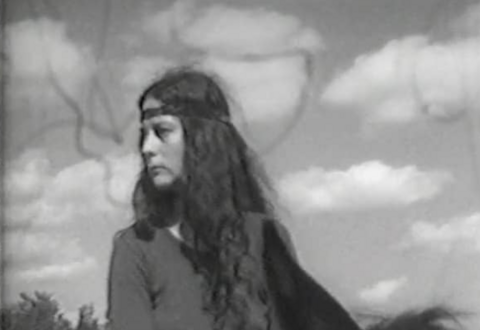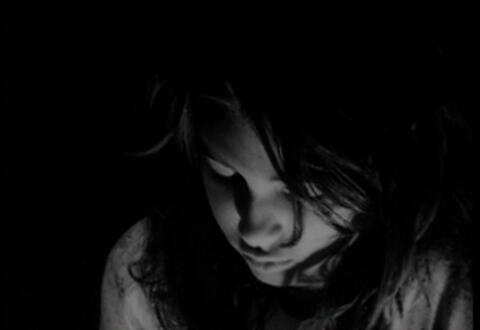Voice: Off
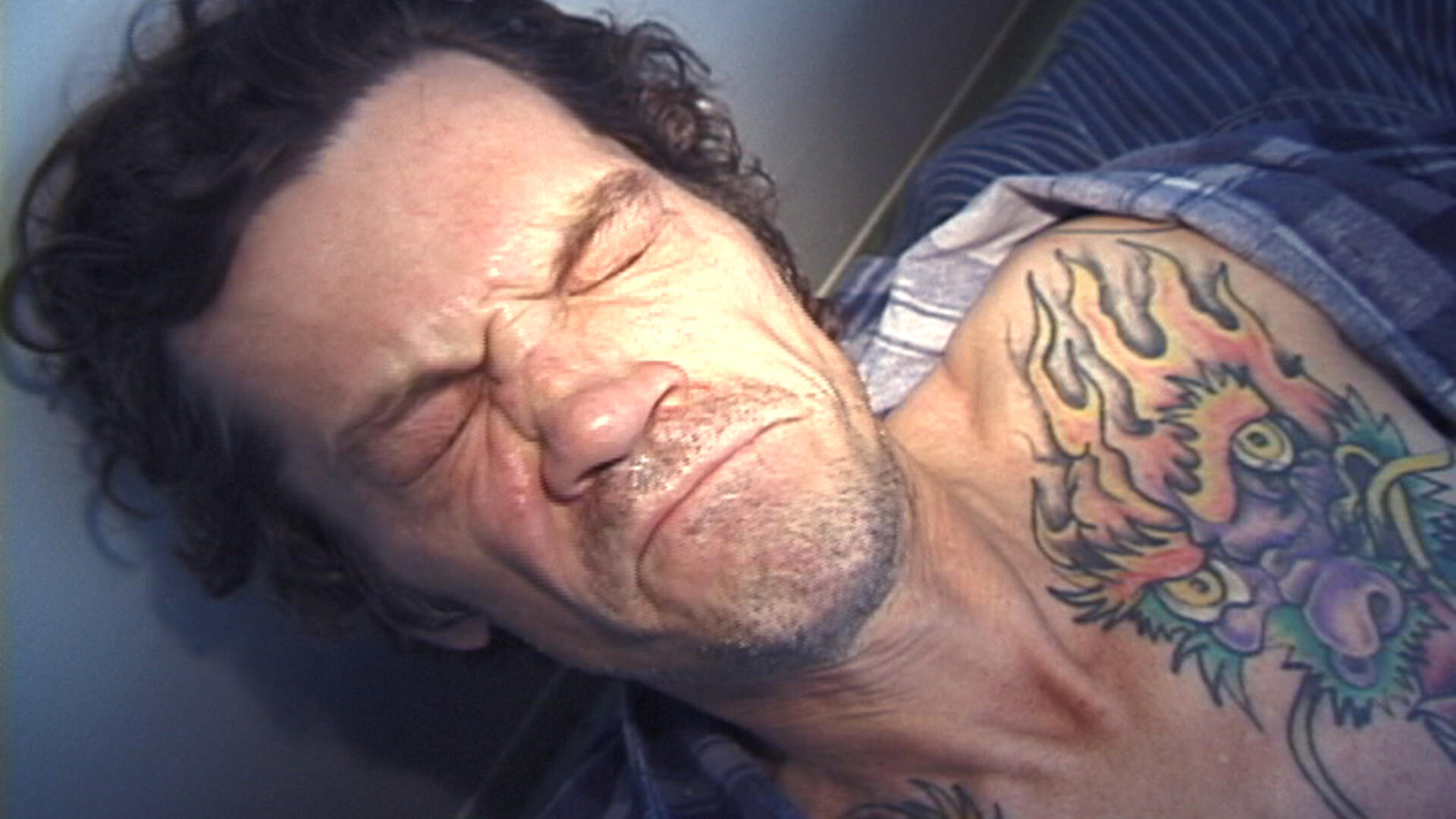
Donigan Cumming looks at the violence of time that damages the body and exhausts memories. For the main character in Voice: Off, Gerald, the illness is incurable. Two cancers are at work, one of which is attacking his throat. The first images are the irrefutable ones of a naked man who has reached old age and whose voice is failing. The capturing in real time of death at work is one of the terms of this dense and complex film. But Cumming also likes to go back in time in search of a state of innocence. In his studio he spreads out the photographs of Gerald's life. A new-born child, a little boy cherished by his mother, at boarding school, a charming teenager and a worried adult, these states confer on him different postures, different expressions, and reveal to the eyes of the filmmaker an unsuspected anguish. Among these pictures, one of Cumming himself reminds us how close he is to the family as a faithful and insistent chronicler. He holds his video camera, sticks to his subject and details the photos. With obsession he seeks for legitimacy in his approach in-between fascination with hints of morbidity and reflections of a metaphysical bent. Iconoclastic and brutal in its hurried search, Voice: Off is strangely fraternal. One scene in particular reflects this. Gerald and a friend are standing in a small room. Time stands still. Nothing happens, they appear to be waiting aimlessly. Like characters out of Beckett's works they are left to the absurd fate of humanity.
Jean Perret, Visions du réel, 2002
(Translation: Paul Belle)
Credits
Technical information
Documentation
Autobiography, Memory, Loss, Oblivion, Speech






